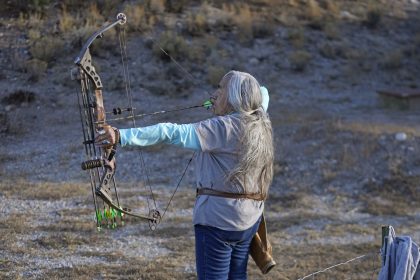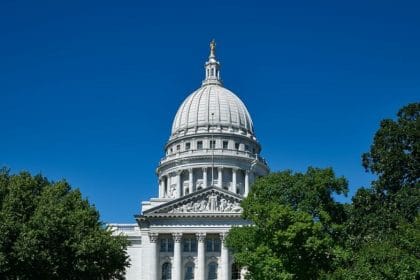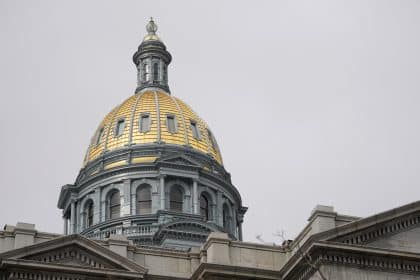Shelves Bare of Toilet Paper, New State Restrictions as COVID Remains Stubborn Adversary

It’s the time of year when many of us start to think “it’s beginning to look a lot like Christmas,” but for residents of an ever-growing number of states, this November is starting to look an awful lot like March all over again.
That’s because a resurgence of the coronavirus outbreak is quickly forcing state governors to backtrack on phased reopenings of their communities they’ve been implementing over the past few months.
On Sunday, Washington State Gov. Jay Inslee announced new temporary state restrictions aimed at reducing a recent spike in COVID-19 cases there. Washington is currently reporting about 2,000 new cases a day.
But even as he stressed the temporary nature of the new order, he acknowledged the move might inspire another round of hoarding by his fellow citizens.
“Buying up everything really hurts everybody,” Inslee said.
“There is no necessity for it right now,” he added.
Nevertheless, supermarkets and other retailers in the state reported an immediate run on toilet paper, with several Seattle stores saying they were completely out by Sunday night.
Inslee said because of the current spike, he felt he had no choice but to reinstate restrictions “to preserve the public’s well-being and to save lives.”
“These were very difficult decisions that have very real consequences to people’s livelihoods. I recognize that and don’t take those impacts lightly, but we must act now and act quickly to slow the spread of this disease” he said.
The new restrictions took effect on Monday and will remain in effect until Monday, December 14.
The modified restrictions of restaurants, however, were set to take effect today.
Under Inslee’s new order, bars and restaurants will no longer be allowed to offer indoor seating.
Outdoor seating will be allowed as long as proper safety protocols are followed, including tables being limited to no more than five people at a time. Restaurants will still be able to offer their customers to go orders.
All in-store retail, including grocery stores, will be limited to 25% capacity, and lingering in seated areas is off-limits.
Religious services will also be limited to 25% indoor occupancy or no more than 200 people, with face coverings required at all times. No choir, band, or ensemble can perform during the service.
In addition, all business meetings are prohibited. Only professional training and testing that cannot be done remotely is allowed. Occupancy for meetings is limited to 25% or 100 people, whichever is fewer.
Meanwhile, entertainment venues like movie theaters, bowling alleys, museums and zoos will all be banned from offering indoor service, though drive-in theaters will still be allowed to operate under previously laid out restrictions. Long-term care facilities can only offer outdoor visits, with exceptions for end-of-life care.
Weddings and funeral receptions will be limited to no more than 30 people and youth and adult sports must be held outside only with all athletes wearing masks.
Personal services, such as barber shops and salons, are also limited to 25% capacity and real estate open houses are prohibited.
The latest governor to join Inslee in imposing new restrictions was Maryland Gov. Larry Hogan.
In order to restrict the spread of the virus, Hogan imposed a 10 p.m. curfew for all bars and restaurants across the state and tightened capacity limits at retail outlets, religious facilities, barbershops and salons.
It goes into effect on Friday.
In addition, the new capacity limits at businesses will be capped at 50%, the governor announced.
In a related move, the Maryland Department of Health has suspended most visits to hospitals and nursing homes to protect vulnerable populations.
Hogan said “every corner of our state” is now experiencing widespread community transmission.
“This virus has been with us for so long that too many of us have become numb to staggering spiking numbers that are being announced every day,” Hogan said.
In addition to bars and restaurants, the order applies to any facility or venue where food and alcohol is served, including nightclubs and social clubs.
A curfew will begin Thursday in Ohio from 10 p.m. to 5 a.m. for the next three weeks, Gov. Mike DeWine announced Tuesday.
“We believe this will help reduce COVID-19 spread,” he said. “I’m also asking each Ohioan every day to do at least one thing that reduces your contact with others.”
DeWine said the curfew will not apply to people going to and from work, or to anyone getting groceries, picking up takeout, or picking up medicine.
“The goal is to have fewer contacts,” he said. “The whole idea is if you can slow these contacts down it will go a long way in slowing this virus down.”
DeWine asked Ohioans to cut down contact with non-household members by 20 to 25%.
“Paired with mask-wearing, this will go a long way from stopping our hospitals from being overrun,” he said.
Other states reimposing similar restrictions on Tuesday were Iowa and Oklahoma. On Monday, Michigan Gov. Gretchen Whitmer’s administration ordered high schools and colleges to stop in-person classes, closed restaurants to indoor dining and suspended organized sports — including the football playoffs — in an attempt to curb the state’s spiking case numbers.
The order also restricts indoor and outdoor residential gatherings, closes some entertainment facilities and bans gyms from hosting group exercise classes.
The new rules, set to last three weeks, are extensive but not as sweeping the Democratic governor’s stay-at-home order this past spring.
The latest round of restrictions came on a day when Dr. Anothny Fauci, the federal government’s top infectious disease expert, said the nation needed “a uniform approach” to the coronavirus pandemic, rather than “a disjointed” state-by-state response.
“We need some fundamental public health measures that everyone should be adhering to, not a disjointed, ‘One state says one thing, the other state says another thing,’” Dr. Fauci said.
























